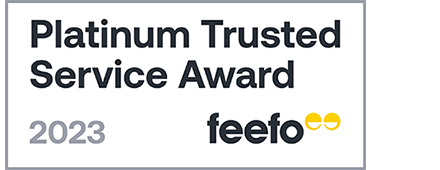leasehold charges – what’s fair and reasonable?
How do you know if the fees you’re being charged by your managing agent or landlord are fair? Can you ever be sure you’re not overpaying on your service charge? And what about sinking or reserve funds? Why might you need to chip in extra every year for maintenance that hasn’t taken place yet?
In this article we’ll demystify leasehold charges so you can get a better handle on what’s fair for your block… and if it’s not, what you can do about it.
what am I actually paying for and why?
The terms of your lease should specify how your service charge is calculated, when it’s payable and what it can (or cannot) be used for. Typically, service charges are variable so they can change from year to year in line with the actual amount of money (or estimated amount) being spent on maintaining the property.
Generally speaking, service charges cover things like:
- Contract costs for the people who supply a regular service to your block (i.e. cleaners, gardeners, concierge)
- Day to day property maintenance and specialist services (e.g. electricians, locksmiths, building and repairs people)
- Electricity costs for lighting/heating of communal areas
- Buildings insurance
- Property management costs and associated admin expenses (i.e. payment of a third party management company)
If the terms of your lease provide for it, your service charge may also include a contribution towards a sinking or reserve fund to cover the more costly maintenance projects that your block will need over the course of it’s life.
These major works include things like replacing the roof or redecorating the entire block – those infrequent, but large-scale projects that can cost a pretty penny. By collecting and saving money towards these things on a regular basis your managing agent or freeholder can avoid having to sting you for a large and unexpected bill when the time comes to do the work.
how is the service charge calculated?
Your property manager or landlord should have a good eye on the money they’ve already committed to contractors for the coming year, as well as the cash they need to collect and set aside for those future maintenance projects.
This will give them a total estimated figure for the coming year, which typically gets divided equally between all of the apartments in your block, or proportionately according to the size of your flat.
If there was a shortfall between what was collected in the previous year and what was actually spent, or there is likely to be an increase in costs for the coming year for whatever reason, then you should be notified with the details so you can see what’s going on.
what if it’s a brand new development?
For new apartments, the landlord or managing agent may look at comparable properties in the local area to get an idea of the kind of charges being levied elsewhere. But, since every block is different and will need differing levels of maintenance over time this should only ever be done as a benchmarking exercise.
can I just compare apples with apples?
No. Even if they look similar from the outside, are about the same size or are both 10 years old, no two blocks are truly alike. So … if you get word that your friend in a similar apartment on the other side of town is paying more or less for their service charge than you, remember that the financial ‘needs’ of your block might be entirely different to theirs. There are so many variables it would be like comparing apples with bananas!
should I expect extras or one-off payments on top of my service charge?
Again, this depends entirely on what is detailed in your lease. Some leases do state that there may be an extra charge at the end of the year when actual costs are known (e.g. if there was a shortfall from the previous year).
Some will also credit money back to you if there was an underspend, although commonly if there is leftover cash, the managing agent or landlord may hang on to this and add it to the reserve fund for future major works.
what does fair and reasonable mean?
Technically, your landlord or managing agent can set the service charges for your block at any level. There is no minimum or maximum amount defined by leasehold or property law. There is also no legal definition of what is considered ‘reasonable’.
However, the charges for your block must be based on the actual costs of maintenance and management. They are not a way of generating profit for the landlord or managing agent. All money collected must be used towards the genuine cost of running the building and the amounts charged must be considered reasonable for the size, age, condition, facilities and location of the property.
If you’re in the process of buying a flat, then your solicitor will normally ask the seller for the current and future projected service charge rate, so you have a heads up on the likely ongoing costs (and any possible increases) before you commit to buy.
If you already own a flat, or represent other residents in your block, then you are also entitled to ask the managing agent or freeholder for copies of invoices and accounts relating to the upkeep of the building, if you want to satisfy yourself that the charges are indeed reasonable.
the numbers just don’t stack up. What can I do about it?
Firstly, there are a couple of important leasehold technicalities worth noting here.
- You are only legally bound to paying a service charge if your lease explicitly states that one is payable. If it doesn’t and you have received a demand for such, then you can challenge this.
- It sounds crazy, but if the lease doesn’t state how the landlord or management company will spend the service charge, they aren’t legally bound to spend it in a particular way.
So, our advice is always to check the exact wording of your lease so you know where you stand before making a fuss.
Where a service charge IS payable then your managing agent or landlord must provide you with a statement of account every year showing how the money has been spent. This is how they can demonstrate that the money is being handled properly and charges are reasonable.
If this information isn’t forthcoming, you are within your rights to query the charges, but we don’t recommend withholding payment in case this puts you in breach of contract. It’s better to make the payment and then seek advice on how to challenge the charges after the event.
This could include applying to the First Tier Tribunal (FTT) to have the charges looked at in court. Find out more about that here. https://www.gov.uk/courts-tribunals/first-tier-tribunal-property-chamber
is there anything else I can do?
Any decent property management company will have service charges high on their agenda. It’s our job to help clients set fair and reasonable charges, so if you don’t feel this is happening with your block, then maybe it’s time to suggest a change of managing agent! You can always give us a buzz if you want a bit of advice on next steps. We’re happy to help.
For more information on leasehold charges, check these out:
- RICS Service Charge Residential Management Code http://www.rics.org/Global/Service_charge_residential_management_code_PGguidance_3rd_edition_2016.pdf
- The Leasehold Advisory Service
http://www.lease-advice.org.uk/documents/Service_Charges.pdf






